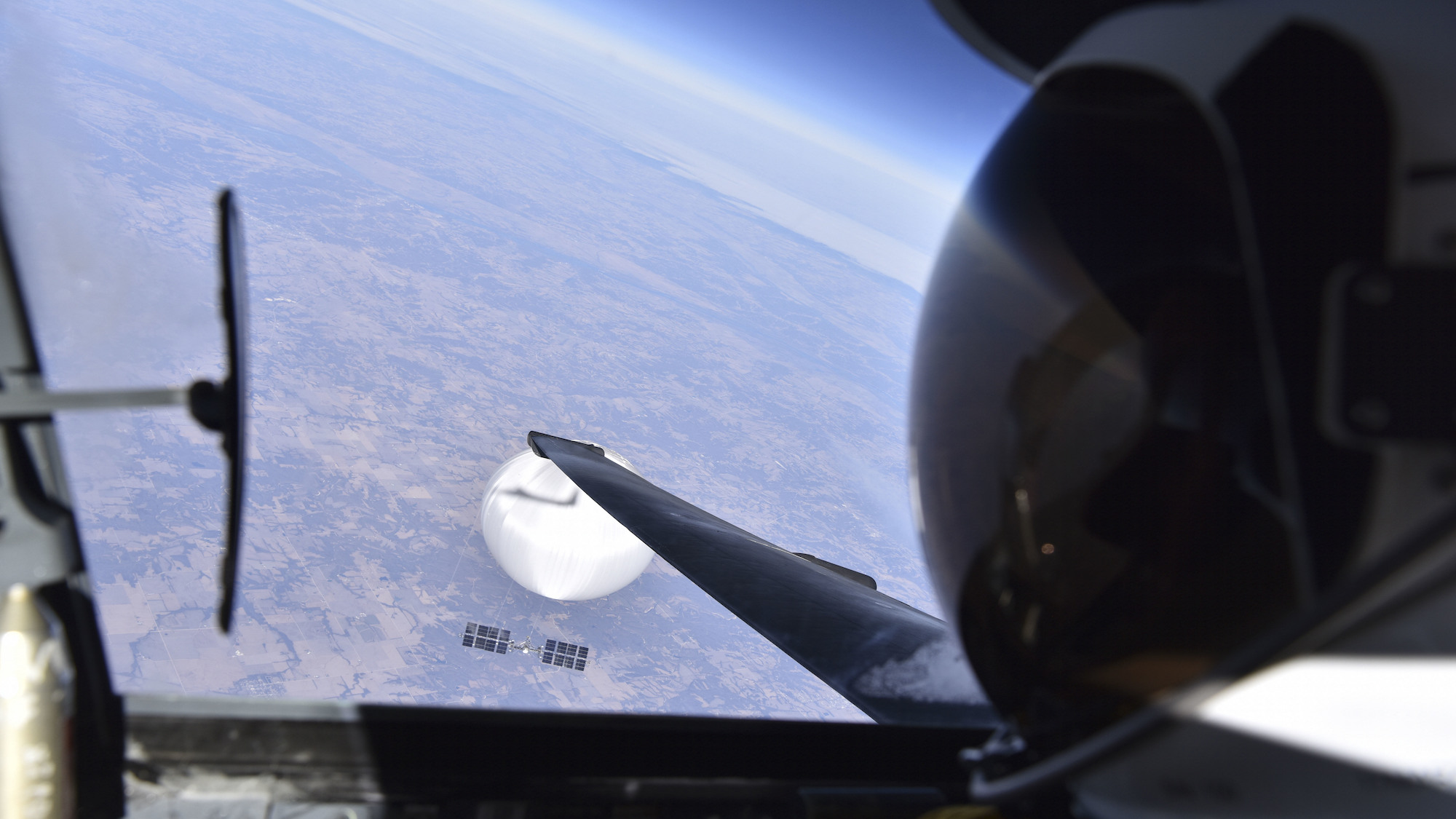

A striking photo released on February 22 by the Department of Defense reveals a unique aerial scene: The image shows the Chinese surveillance balloon as seen from the cockpit of a U-2 spy plane on February 3, along with the pilot’s helmet, the aircraft’s wing, and even the shadow of the plane itself on the balloon.
While the subject of the photo is the balloon, which was later shot down by an F-22, the aircraft that made the image possible is referenced in the image’s simple title: “U-2 Pilot over Central Continental United States.” Here’s a brief primer on that aircraft, a high-flying spy plane with a reputation for being tough to operate and land.
The U-2 aircraft is designed to operate at “over 70,000 feet,” according to an Air Force fact sheet. That very high altitude means that it flies way higher than commercial jet aircraft, which tend to cruise at a maximum altitude in the lower end of the 40,000-foot range.
The U-2’s ability to climb above 70,000 feet in altitude “makes it, I believe, the highest flying aircraft that we know about in the Air Force inventory,” says Todd Harrison, a defense analyst with Metrea, a firm formerly known as Meta Aerospace. “That becomes important for a mission like this, where the balloon was operating around 60,000 feet.”
[Related: Why the US might be finding more unidentified flying objects]
The plane features wings that stretch to a width of 105 feet, which is about three times longer than the wingspan of an F-16. “It is designed for very high altitude flight, and it has a very efficient wing—[a] very high aspect ratio wing, so that makes it very long and slender,” Harrison says. Long, slender wings are indeed more efficient than shorter, stubbier ones, which is one of the reasons NASA and Boeing are planning to have truss-supported skinny wings on an experimental commercial aircraft called the Sustainable Flight Demonstrator that would be more fuel efficient than existing models.
On the U-2, those long wings, which are an asset in the sky, make for a real challenge when trying to get it back down on the ground. “This jet does not want to be on the ground, and that’s a real problem when it comes to landing it,” Matt Nauman, a U-2 pilot, said at an Air Force event in 2019 that Popular Science attended. To land it, “we’ll actually slow down, and that nose will continue to come up until the plane essentially falls out of the sky,” at just about two feet off the ground.
[Related: Biden says flying objects likely not ‘related to China’s spy balloon program’]
A few other aspects figure into the landing. One is that the aircraft has what’s known as bicycle-style landing gear, as opposed to the tricycle-style landing gear of a regular commercial plane. In other words: It has just two landing gear legs, not three, so is tippy, side-to-side, as it touches down. To help with those landings, a chase car literally follows the plane down the runway as it’s coming in to land, with its driver—a U-2 pilot as well—in radio contact with the pilot in the plane to help them get the bird on the tarmac. This video shows that process.

Because the plane is designed to fly at such high altitudes, the pilot dons a heavy space suit like this daredevil wore in 2012, while the cockpit is pressured to an altitude of about 14,000 or 15,000 feet. Having that gear on makes landing the plane even more challenging, as another U-2 pilot said in 2019, reflecting: “You’re effectively wearing a fishbowl on your head.” But having the suit means the pilot is protected from the thin atmosphere if the plane were to have a problem or the pilot had to eject.
[Related: Everything you could ever want to know about flying the U-2 spy plane]
The point of the aircraft is to gather information. “It is used to spy, and collect intelligence on others,” says Harrison. “It has been upgraded and modernized over the years, with airframe modernization, obviously the sensors have gotten better and better.” The U-2 famously used to shoot photographs using old-school wet film with what’s called the Optical Bar Camera, and stopped doing so only in the summer of 2022.

As for the recent photo of the surveillance balloon from the U-2, a reporter for NPR speculates that it was taken specifically “just south of Bellflower” Missouri, as did a Twitter user with the handle @obretix .
“It’s a pretty incredible photo,” Harrison reflects. “It does show that the US was actively surveilling this balloon up close throughout its transit of the United States. It’s interesting that the U-2 pilot was actually able to capture a selfie like that while flying at that altitude.”
On February 6, a Popular Science sibling website, the War Zone, reported that the US had employed U-2 aircraft to keep tabs on the balloon. And on February 8, CNN reported before this photo’s official release that a “pilot took a selfie in the cockpit that shows both the pilot and the surveillance balloon itself,” citing US officials.
